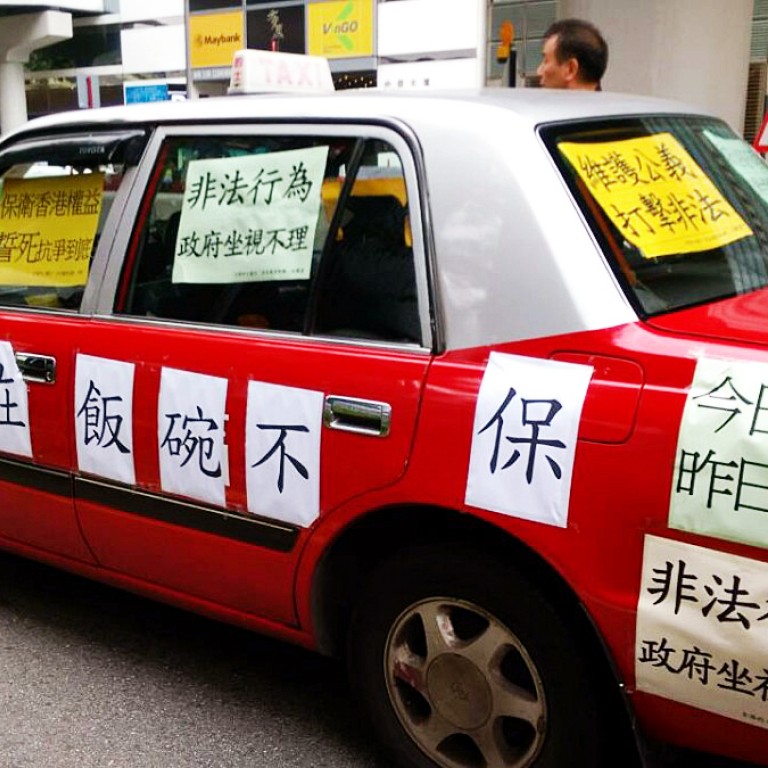
Update | More than 100 Hong Kong taxi drivers protest against Uber and other car-hailing apps
More than 100 taxis drove to the headquarters of the Hong Kong government in the city's Admiralty district on Monday morning to protest against car-hailing apps which they claim are costing them business.
The taxi drivers said that private car-hailing apps like Uber are costing them as much as HK$200 (US$26) per day. They called for greater regulation to ensure that people offering rides through the apps had taxi licences.
The two groups of protesters drove to government headquarters from Kowloon Bay and Sai Wan Ho.
“We are protesting against Uber drivers who are affecting our income,” said 31-year-old Desmond Wong, a taxi driver who participated in the protests.
“They don’t have the proper licence to operate,” said Wong, who has been driving a taxi for three years.
In a statement, Uber said it believed "the transportation sector benefits from technological innovation".
DON'T MISS: Uber sends security to aid drivers being threatened by cabbies in South Africa
"The single highest priority for Uber is safety; all rides on the Uber platform are fully insured for riders and drivers," a spokeswoman said.
Wong told the South China Morning Post that before Uber and similar apps entered the Hong Kong market, he made around HK$20,000 a month (US$2,600). But his monthly income has since shrunk by a quarter.
A Hong Kong taxi licence costs HK$7 million. Wong said that his insurance premiums can range as high as HK$25,000 per year.
The government has not responded to their actions so far.
“If the government doesn’t take action, we will keep on protesting,” Wong said.
Hong Kong taxi drivers are not alone in their anger at car-hailing apps. Protests by taxi drivers against Uber and competing services have erupted across Europe and the US.
On Friday, Uber suspended its low-cost uberPOP taxi service in France after protests turned violent, in a bid to protect its drivers from further risk.
Mainland China has also cracked down on car-hailing apps, enacting a law that bans private cars from offering rides via apps and raiding Uber offices in Chengdu and Guangzhou in April.
In June, Didi Zhuanche and Uber drivers fought with police in Guangzhou when an unlicensed private car driver was detained as part of an undercover operation.


